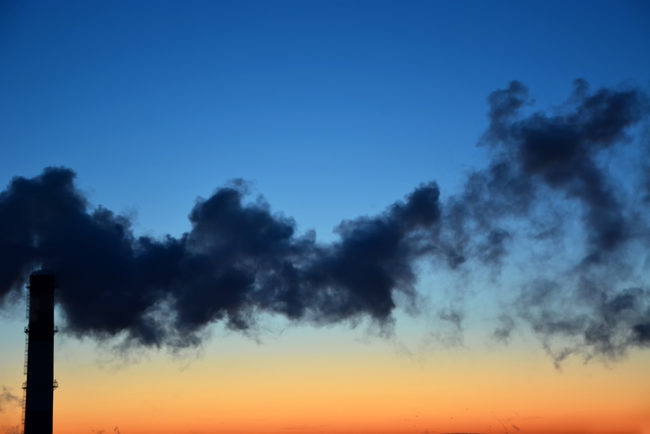The Illinois Environmental Protection Agency has announced new rule proposals for sulfur dioxide and nitrogen oxide emissions from coal plants. The proposed amendments to the state’s Multi-Pollutant Strategy would limit sulfur dioxide emissions to 55,000 tons per year and limit nitrogen oxide emissions to 25,000 tons per year.
The Multi-Pollutant Standard, or “MPS,” was originally negotiated between power companies and Illinois in 2006. Under the MPS, the power companies agreed to install pollution control equipment for sulfur dioxide, mercury and nitrogen oxide by certain deadlines. However, some plants were excused from installing certain controls if the companies promised to make upgrades on other plants.
To deal with sulfur dioxide emissions, the companies installed “scrubbers” at several of the coal plants. A scrubber system works by spraying a wet slurry of limestone into a large chamber where the calcium in the limestone reacts with the sulfur dioxide. The scrubbers make the plants more expensive to run, requiring extra power inputs, staff and disposal of the scrubbing byproduct.
Under the current MPS agreement, each power company’s combined plant output has to meet a certain rate of average sulfur dioxide emissions per amount of energy produced. The companies achieve the goals by using the cleaner plants with scrubbers to balance the emissions from the plants without scrubbers. The new draft rules change this dynamic and instead place a limit on total tonnage of sulfur dioxide emissions each year.
“These amendments, if adopted by the Illinois Pollution Control Board, would impose a hard limit on tons of emissions from power plants for the first time,” said Kim Biggs, the public information officer for the Illinois EPA. “To be very clear, these new tonnage limits are considerably lower than what the units are now allowed to emit based on emission rates that are contained in the MPS as it now exists.”
Illinois Environmental Protection Agency Director Alec Messina said the aim is to keep financially struggling coal plants open and give the power companies more flexibility. But, Illinois Attorney General Lisa Madigan’s office has questioned the proposed regulations, saying the proposed pollution caps are set so high the state would be encouraging the power companies to pollute more. Critics have also argued that the new system would serve as an incentive to the power companies to abandon the plants with the scrubbers, in favor of running the plants without scrubbers that operate at a lower cost.
“Ten years ago we fought for this rule and we got assurances about the scrubbers being installed,” said Faith Bugel, an attorney representing the Sierra Club. “Now there’s an incentive to retire cleaner plants and hundreds of millions of dollars invested in scrubbers will just be thrown away, along with the clean air benefits. That outcome to me is absurd.”
The Illinois EPA will submit the proposal to the Illinois Pollution Control Board, which will determine if it should be adopted.

